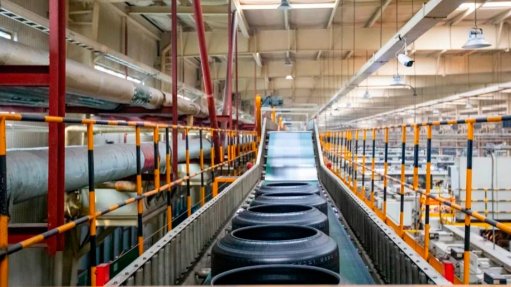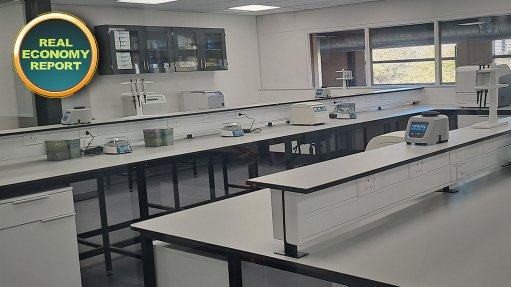Forget Cost Management – think ‘Value Management’
This article has been supplied.
As a business, it has always been wise to regularly look back and reflect on progress (or the lack thereof), and to then take stock of the current trajectory. Increasingly, this has become an important process for entire industries – not just individual businesses. At Barloworld Logistics, we conduct an annual survey across the local supply chain sector to gauge where it is at – and what business leaders can and should be planning for. Almost every year, this survey reveals a persisting anxiety around the ‘cost of doing business’.
Consequently, business leaders are almost always looking to ‘cut costs’ and trim operating expenditures in the year ahead. Indeed, when things aren’t going well – and business conditions are challenging – cost cutting is invariably the default reaction. Yet in our view, the thinking around costs and expenditures among executive level leadership is often flawed.
Knee-Jerk Reactions
In tough economic times, management teams tend to just take a rather ruthless approach to various areas of the business where they perceive costs as being too high. For example, they immediately cut the marketing budget – when in fact marketing may be more critical than ever before. Or they trim down expenditure on IT systems, when investing in more streamlined IT processes can quickly turn into a cost saving. Typically, costs within a company are being divided into pure operational costs - but these, in themselves, have massive indirect costs (head office expenses, FICA [for banks], IT, etc.). But in taking this approach, businesses usually have little to no idea of what the true cost to provide their service/product is.
Hiding More than it Reveals
Essentially, management teams fail to look at costs relative to the value they produce. Cutting costs can be smart and prudent – when those costs aren’t creating significant value for the business. But when they are, and the value is overlooked, then cutting costs will ultimately harm short and long-term growth. For example, if you are a food retailer, and providing fresh produce is one of your critical selling points for customers, then cutting down on delivery and logistical expenditures would be foolish. In fact, spending more on ensuring delivery is timely and efficient would be the smart move, in this scenario.
Unfortunately, most businesses do not have the ability to identify exactly which costs are creating value – and which are leading to profit erosion. In general, this is because accounting practices have not evolved, and still rely on the old school approach of merely ‘balancing the books’. This type of accounting often hides far more than it reveals. It is more an aggregation of a bunch of figures – instead of a definitive and skilled analysis that takes place at the transaction level. And only by digging down to this level, can one really determine sources of profitability - and sources of profit erosion.
Data-Driven Approach
In today’s increasingly complex – and fast changing - operating environment, businesses need to take a far more scientific and ultimately data-driven approach to managing costs. Given the huge amounts of data now being produced on a daily basis, businesses have no lack of information. (Arguably, they are drowning in information).
The real challenge is to ask the right questions – and then look at the correct data for answers. Data is almost useless without a very specific and clearly constructed approach. Research firm Gartner has used the analogy of a pond, with regards to the data explosion. Ignore the pond, they advise decision-makers, and first decide what information it is that you’re seeking – and then go fishing.
The good news for businesses is that technology is quickly evolving to be able to provide the type of actionable intelligence they so desperately need. First, however, business leaders will have to shift their fundamental approach – from cost management to value management. Only by making this shift can they capitalise on the promise of smart technology and data-driven analysis.
Comments
Press Office
Announcements
What's On
Subscribe to improve your user experience...
Option 1 (equivalent of R125 a month):
Receive a weekly copy of Creamer Media's Engineering News & Mining Weekly magazine
(print copy for those in South Africa and e-magazine for those outside of South Africa)
Receive daily email newsletters
Access to full search results
Access archive of magazine back copies
Access to Projects in Progress
Access to ONE Research Report of your choice in PDF format
Option 2 (equivalent of R375 a month):
All benefits from Option 1
PLUS
Access to Creamer Media's Research Channel Africa for ALL Research Reports, in PDF format, on various industrial and mining sectors
including Electricity; Water; Energy Transition; Hydrogen; Roads, Rail and Ports; Coal; Gold; Platinum; Battery Metals; etc.
Already a subscriber?
Forgotten your password?
Receive weekly copy of Creamer Media's Engineering News & Mining Weekly magazine (print copy for those in South Africa and e-magazine for those outside of South Africa)
➕
Recieve daily email newsletters
➕
Access to full search results
➕
Access archive of magazine back copies
➕
Access to Projects in Progress
➕
Access to ONE Research Report of your choice in PDF format
RESEARCH CHANNEL AFRICA
R4500 (equivalent of R375 a month)
SUBSCRIBEAll benefits from Option 1
➕
Access to Creamer Media's Research Channel Africa for ALL Research Reports on various industrial and mining sectors, in PDF format, including on:
Electricity
➕
Water
➕
Energy Transition
➕
Hydrogen
➕
Roads, Rail and Ports
➕
Coal
➕
Gold
➕
Platinum
➕
Battery Metals
➕
etc.
Receive all benefits from Option 1 or Option 2 delivered to numerous people at your company
➕
Multiple User names and Passwords for simultaneous log-ins
➕
Intranet integration access to all in your organisation

















